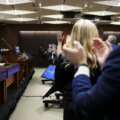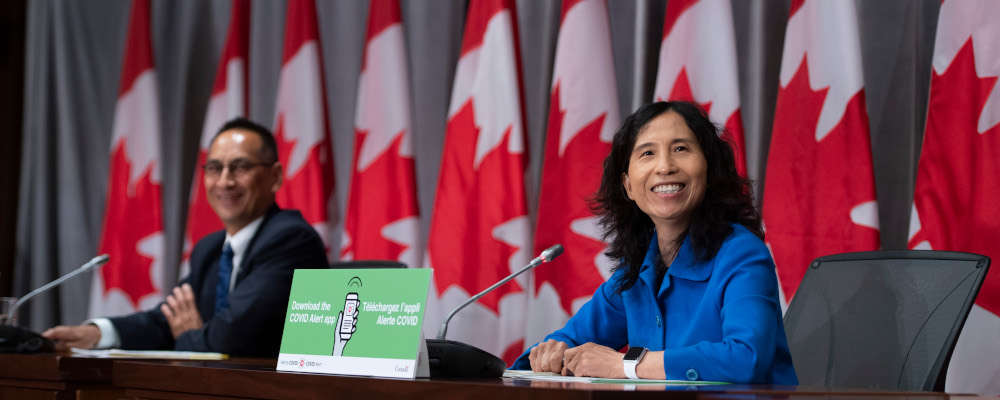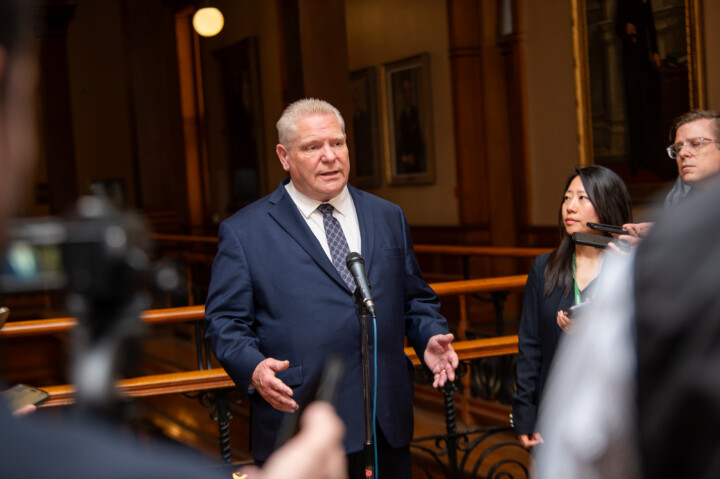I saw a fascinating tweet last week that reflected something that I’ve been thinking about a lot lately. University of Waterloo labour economist Mikal Skuterud wondered aloud whether the experts whose influence and profile have risen over the past twenty-four months or so may be consciously or subconsciously inclined to prolong the pandemic.
Skuterud’s question doesn’t attribute malice or ill-intent. He’s not questioning whether academics or public servants would purposefully manipulate data or intentionally provide misleading advice. He’s making a far more subtle yet important point.
He’s asking if our pandemic-induced emphasis on expertise may inadvertently create a powerful set of incentives in which these same experts may eventually find it challenging to surrender the sense of power and purpose that they’ve been given over the past two years. It’s a question worth asking.
As he rightly notes, the pandemic has necessarily elevated certain experts in our society. We’ve seen doctors, epidemiologists, and other public health experts come to have unprecedented influence over government policymaking and uncharacteristic prominence in the mainstream media and on social media.
That’s somewhat natural in light of the circumstances. It’s to be expected that policymakers, the media, and the general population would come to value infectious disease experts in the face of a novel coronavirus.
The result though is that a number of hitherto obscure academics and bureaucrats have never mattered this much before and probably never will again. It’s not normal for them to appear on television each day or increase their Twitter followings tenfold.
Such a surge of influence and profile can bring with it a powerful set of incentives. It can contribute to a loss of perspective and an inflation of one’s ego. It can encourage individuals who may usually be scholarly and taciturn to be more quarrelsome and vehement. It can preference 280 characters over nuance. It can turn little-known academics into political actors.
Skuterud’s question is therefore a good and honest one. How might this extraordinary yet temporary increase in the role of certain experts influence how they think about the pandemic and advise on pandemic-related policies including the continuation of public-health restrictions?
The answer may lie in Public Choice theory, which the Nobel Prize-winning economist James Buchanan famously defined as “politics without romance.” Public Choice came about in the second half of the twentieth century under the intellectual influence of Buchanan, his regular collaborator, Gordon Tullock, political economist Mancur Olson, and various others.
The basic idea is that our understanding of one’s motivations in the private economy ought to extend to his or her involvement in government, politics, and public policy. As economist Pierre Lemieux has succinctly put it: “He does not metamorphose into an altruist angel.”
Most economic analysis starts with a basic premise: the market is comprised of rational actors pursuing their own self-interest. Yet these same assumptions about human behaviour aren’t always applied in the political sphere. The underlying presumption can be that activists, bureaucrats, and politicians are somehow beyond self-interest and are instead capable of making judgments about government policy without accounting for their own personal interests.
Public Choice theory challenges this notion. It uses modern economics to analyse politics and political decision-making. It starts from the premise that different actors in the political process are self-interested agents who will seek to maximize their own utility function just like individuals do in the marketplace.
In practice, it means that politicians may offer voters popular measures to get elected, public servants might conceive of new programs to obtain more funding and greater resources for their departments, and special interest groups—including unions and corporations—invariably lobby government to obtain new benefits such as tariffs to protect their businesses or laws or regulations that advance their own interests.
This hardly seems like a revolutionary idea now. Public Choice theory has become a well-respected school of economic thought with a number of prolific exponents and a wide range of applications. But, at its infancy, it was seen as a radical proposition that brought into question the capacity of government to make collective decisions in the public interest.
The consequence of Public Choice isn’t to challenge government’s basic legitimacy or reject it altogether. It’s instead a call for a clear-eyed assessment of the impulses and motivations behind different actors involved in politics and public administration. This extends to the experts and journalists who form part of the overall system and must be similarly understood as influenced by a broadly defined notion of self-interest. It’s not narrowly about monetary reward either—though financial gain may be a factor for some. It can extend to other rewards including influence, profile, or the sense of meaning and purpose that the pandemic’s emphasis on expertise has granted.
It’s important to emphasize that this isn’t a description of moral failing. Recognizing the pull of self-interest isn’t a judgement of particular people in positions of authority. It’s an observation about human nature and the fact that government and politics are fundamentally comprised of humans and their inherent fallibilities.
Which brings us back to Skuterud’s question. There’s no reason to think that most experts haven’t acted in good faith during the pandemic and sought to make a positive contribution to solving the extraordinary public health crisis. But, as Public Choice tells us, it’s also quite possible that at some level these incentives are shaping the questions that they’re asking, the data that they’re collecting, the analysis that they’re bringing to bear, or how they’re engaging in the public sphere.
The risk, of course, is that these forces come to obtrude collective decision-making and in turn prolong the pandemic. It’s hard to know the magnitude of the risk. But it’s presumably not zero. It must be something that we are cognizant of—especially as the policy choices become more complex and the subject of greater debate.
The ultimate solution to the COVID-19 pandemic is imperfect: it will require a combination of critical thinking and judgement calls without any altruistic angels. This pandemic’s end will necessarily involve a series of trade-offs, calculated choices, and second-best options. It must in short be an exercise in a politics without romance.
Recommended for You
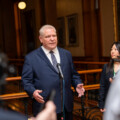
Ontario’s Progressive Conservatives need a wake-up call
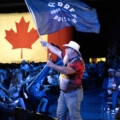
From Jordan Peterson law to bail reform: 9 policy proposals from the Conservative convention that could spur Canada’s comeback
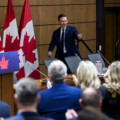
‘A delicate balance’: Why the Conservative convention is a crossroads for the party
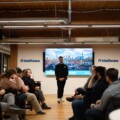
Everyone’s managing decline. I’m exploring a run for Ontario Liberal leader to fight for growth
